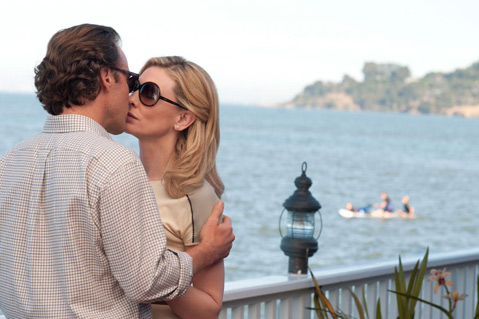Review: Blue Jasmine
Cate Blanchett, Sally Hawkins, and Alec Baldwin star in a film written and directed by Woody Allen.

Watching “the latest Woody Allen film” is an experience unlike any other in film history, partly because he has been so doggedly prolific and work-ethic-fueled that we can’t help but compare and contrast each new release in his filmography. The Allen-gazing experience begins at the beginning, with plain credits in a vintage font against black as vintage music washes over, pleasantly, reassuringly, in a land that exists outside of fashionable time and pop culture.
Into this tonic time warp comes Blue Jasmine, with its “theme song” (“Blue Moon”) and a melodrama-meets-post-film-noir quality you’ve gotta admire, if not entirely love. In the end, it’s hard to know what to make of the uneven, sometimes thin-seeming Blue Jasmine, which belongs in the non-comedic category of his work. Casual fans of Allen’s fluke hit from two years ago, Midnight in Paris, may not be amused this time around, but the Allen watchers among us will rush out to see it nonetheless.
Blue Jasmine’s primary reason for being, and being seen, seems to be the startlingly good performance by Cate Blanchett. We meet our protagonist as she is deplaning in San Francisco (a new turf for Allen), where she is trying to reinvent herself after her high life in New York — along with her mental stability — has come unraveled thanks to her handsome, crooked, philandering business scoundrel husband’s sins (a perfect role for Alec Baldwin). She moves in with her sister of humbler means (the wonderful Sally Hawkins) and tries to regain some viable place in the world.
Blue Jasmine is another of Allen’s experiments in storytelling, in which our sense of chronology and bearings is regularly divided between the post–nervous breakdown heroine in San Francisco and scenes of her swanky past life on Park Avenue and in the Hamptons. We’re reminded of his film Melinda and Melinda, another film about a woman whose tale is told on parallel tracks. The center may not hold very strongly in this year’s Allen offering, but, as always, even a lesser Woody Allen film is greater than its peers.



